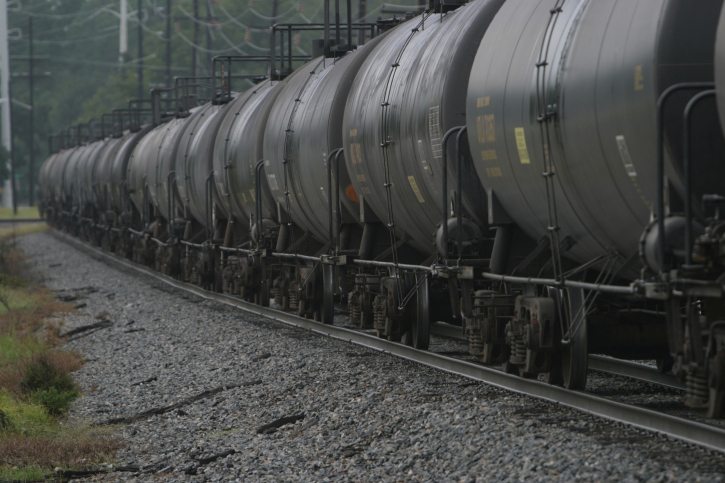Transportation
Is This Really a Solution to Rail Tank Car Explosions?
Published:
Last Updated:

The agreed practices include:
The industry itself has identified 27 risk factors associated with transporting hazardous materials, but the 8 steps the industry plans to take in no way address all of them.
For example, the steps do not retire the old tanker cars, known as DOT-111s. These are known to be more likely to break apart in a crash. Instead, the industry will now “operate trains with 20 or more tank cars carrying crude oil that include at least one older DOT-111 car no faster than 40 miles-per-hour in the federally designated 46 high-threat-urban areas (HTUA) as established by DHS regulations.” Those 46 routes are not publicly disclosed.
On the plus side, any steps the industry takes to self-regulate can be implemented much more quickly than any federally regulated steps can be proposed, debated, adopted and challenged. BNSF, the railroad owned by Warren Buffett’s Berkshire Hathaway In. (NYSE: BRK-B), said last week that it will acquire up to 5,000 of the new rail tankers. Other rail operators and oil producers have said they will scrap the old DOT-111s.
It pays to remember that U.S. railroads are virtually self-regulating. Railroad consultant Fred Millar told the New York Times, “There is a telling lack of any new reporting and accountability measures, and federal resource augmentations, that could signal a new federal determination to reduce risks.” For the country’s railroads, this is an old story.
Another question worth pondering: Are the risks of another disaster such as the one that killed 47 people and destroyed a section of Lac-Mégantic, Quebec, higher or lower than the risks of a spill or explosion on the proposed Keystone XL pipeline?
If you’re one of the over 4 Million Americans set to retire this year, you may want to pay attention.
Finding a financial advisor who puts your interest first can be the difference between a rich retirement and barely getting by, and today it’s easier than ever. SmartAsset’s free tool matches you with up to three fiduciary financial advisors that serve your area in minutes. Each advisor has been carefully vetted, and must act in your best interests. Start your search now.
Don’t waste another minute; get started right here and help your retirement dreams become a retirement reality.
Thank you for reading! Have some feedback for us?
Contact the 24/7 Wall St. editorial team.